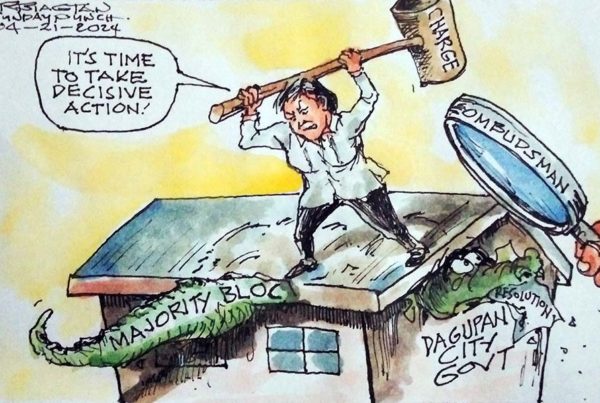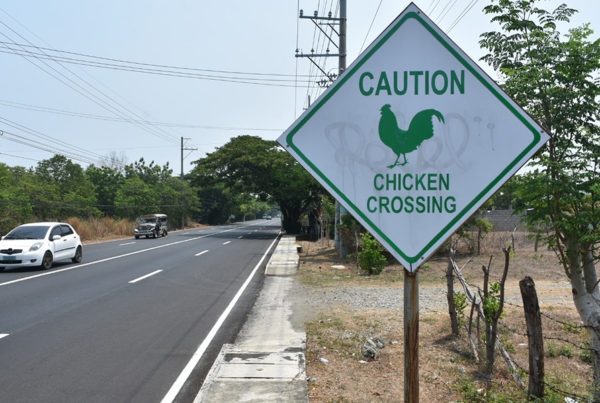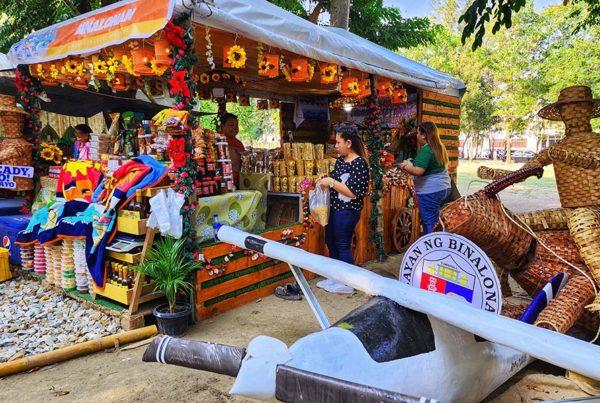CPS in collaboration with prov’l gov’t conducts first-ever confab on Pangasinan studies
CAPITOL NEWS
LINGAYEN, Pangasinan—Healthy dialogues, linkages, and awareness of identity as Pangasinense are expected to be drawn from the three-day conduct of the 1st International Conference on Pangasinan Studies held from October 25 to 27 at the Sison Auditorium.
Conducted by the Center for Pangasinan Studies (CPS) in coordination with the provincial government and in collaboration with the top universities and colleges in the province, the conference aimed to cultivate dialogue and linkage in promoting interest and heightened awareness about the province of Pangasinan and its people.

As stated by Dr. Perla E. Legaspi, CPS Executive Director and conference chair, the event convened stakeholders, advocates, practitioners, scholars, and researchers engaged on the interdisciplinary study of development, arts and culture, language and literature, history, education, tourism, trade and business economics of Pangasinan from its past and contemporary perspectives.
“This international conference is held to examine the multi-scalar and geographically differentiated relationships between political and socio-economic processes and systems, the ways of life and work and their context, as they shape Pangasinan culture, communities and people, and their interrelationships,” Dr. Legaspi noted.
On the other hand, Governor Amado I. Espino, III, who was ably represented by Sangguniang Panlalawigan Member Generoso Tulagan, Jr., stressed in his speech during the opening program on October 25 that the event will allow the participants to see and feel the heart and soul of Pangasinan and how they can interface with the national and global environment.
“Scholars in academic institutions gather together to share serious study and research works on who we are as Pangasinenses, what we are as a province, and where do we go from here,” Gov. Espino said.
As such, Dr. Teodoro J. Herbosa, Executive Vice President of the University of the Philippines System, hailed the provincial government for giving utmost importance to local arts and culture.
“This should be what the local chief executives should be doing, they should be promoting the culture and heritage of each province and I congratulate the province of Pangasinan for spearheading this event,” Dr. Herbosa said as he added that the University of the Philippines more than willing to collaborate with such program and project.
It can be recalled that the Espino administration, which started from the term of former governor and now 5th district representative Amado T. Espino, Jr., has introduced the renaissance of arts and culture of Pangasinan. This started by inspiring the people to revive Pangasinan folk dances and songs made possible through the annual staging of Balitok a Tawir and the institutionalization of the Pangasinan hymn entitled “Luyag Ko Tan Yaman.”
Other vital programs and projects include the publication of the first Pangasinan history book and the creation of a research group who took charged in finding the real birthdate of Pangasinan which was unknown for centuries until in 2010 when it was established that Pangasinan was founded as a political unit on April 5, 1580. As such, Pangasinenses celebrated for the first time the birthdate of Pangasinan during its 430th anniversary which was held on April 5, 2010 under the tenure of the elder Espino.
Continuous programs and projects are being done by the younger Espino who vowed to establish a common ground among different sectors and accelerate the provincial government’s efforts for Pangasinenses to have better life through identifying new perspectives in different fields of endeavor.
The three-day conference is highlighted with parallel sessions with six featured panels. These are as follows: Panel 1- (Re)constructing the past: Local Historical Studies; Panel 2- Revitalizing Pangasinan Language Amidst Linguistic Diversity; Panel 3- From Flora to Pharma: Experimental Studies on Local/Endemic Species; Panel 4- Preserving Pangasinan Heritage; Panel 5- Interactions of Humans and Nature Through Pangasinan Ethnographies; Panel 6- Disaster Management and Local Development in Pangasinan.
Gov. Espino and Vice Governor Jose Ferdinand Z. Calimlim, Jr. will treat the participants to a Governor’s Toast and Cultural Night on the first day of the event.
The second day is anchored on different plenaries with the respective speakers: Strategic Directions Towards Quality and Relevant Education by DepEd Secretary Leonor Magtolis Briones; Healthcare and the SDGs: The Case of Pangasinan by Health Secretary Francisco T. Duque; AFTER Carlos Bulosan, Son of Pangasinan: On the Local, National, and Global by Dr. Oscar V. Campomanes, Associate Professor, Dept. of English, Ateneo de Manila University; Coral Reefs of Pangasinan and its Role as a Field Laboratory for Coral Reef Restoration Ecology by Dr. Romeo M. Dizon, Associate Professor of Biology, University of the Philippines.
Participants will be treated with an optional tour on the final day. (Ruby R. Bernardino)
Share your Comments or Reactions
Powered by Facebook Comments











